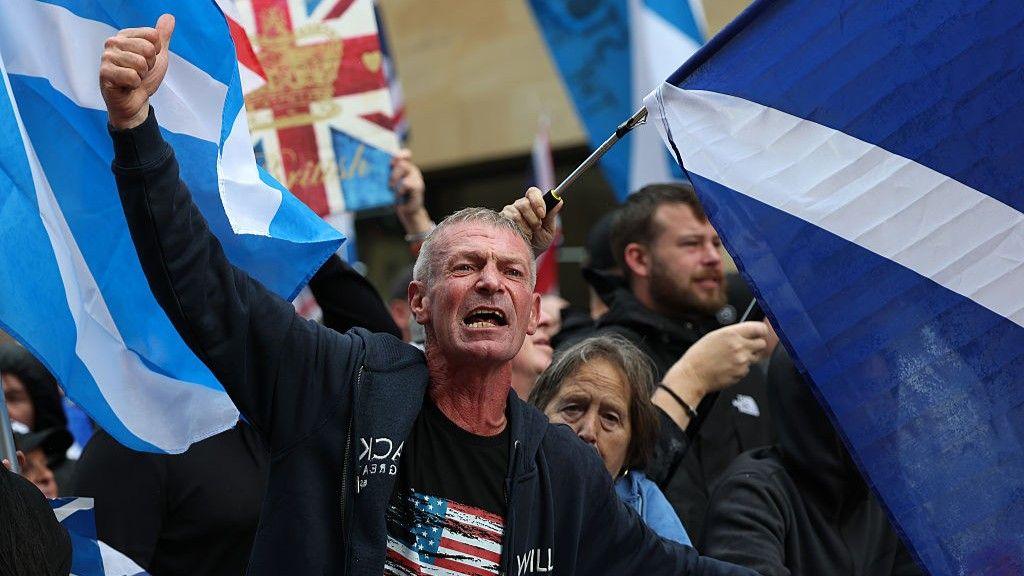Scottish ministers 'deeply concerned' about new UK asylum plans
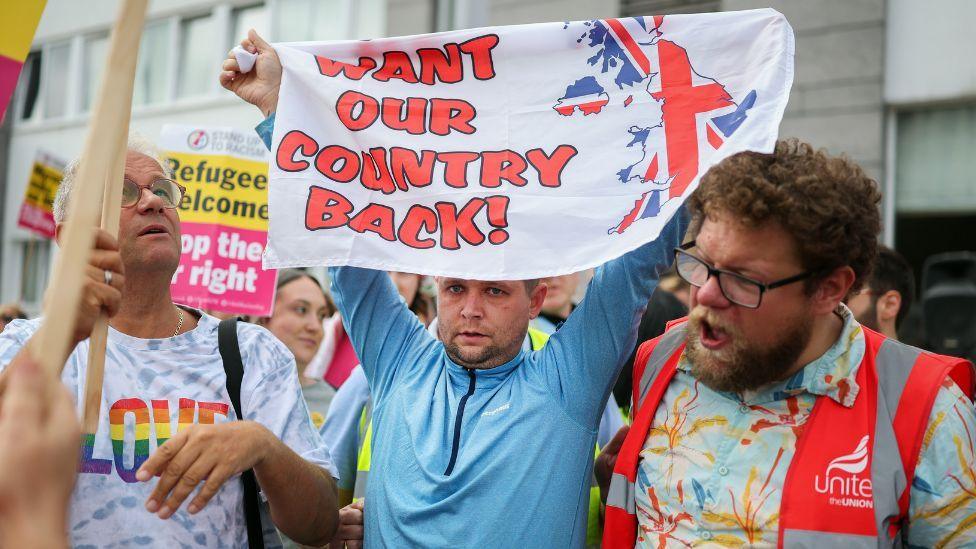
There have been protests and counter protests outside hotels housing asylum seekers in Scotland in recent months
- Published
The Scottish government has said it is "deeply concerned" about proposed new asylum reforms which have been outlined by the home secretary.
Under the plans, external, most asylum seekers will have to wait 20 years to apply to settle permanently, with deportations to be sped up when claims are rejected.
Asylum seekers will also have their refugee status reviewed every two-and-a-half years rather than five, and could be deported if their home country is at any time deemed safe.
Shabana Mahmood said she had a "moral duty" to fix the "broken asylum system" and "unite what is today a divided country".
But Scotland's Social Justice Secretary Shirley-Anne Somerville said the changes would not deliver "a controlled and humane asylum system".
Control over immigration is reserved to the UK government, though the Scottish government has long argued for a more welcoming policy for refugees.
Under the current rules refugee status lasts for five years, after which people can apply for indefinite leave to remain or settled status.
Under the new plans, those granted asylum will have to wait 20 years before they can apply to settle permanently, though some may be able to apply to do this earlier if they entered through "safe and legal routes".
Some, including those that have broken the law, may have their accommodation or payments taken away.
And instead of multiple appeals, people would be restricted to a single appeal which, if unsuccessful, would see them deported.
The Home Office is expected to overhaul the interpretation of some human rights legislation, including the right to family life under the European Convention of Human Rights (ECHR), to apply only to those with immediate family in the UK as grounds to stay.
The UK government has also threatened to impose a visa ban on countries unless they accept the return of criminals and illegal immigrants.
Mahmood said: "Over 100,000 people now live in asylum accommodation, funded by the taxpayer.
"Many refugees remain unemployed several years after being granted protection, depending on taxpayer funded benefits to live in the UK.
"This must change."
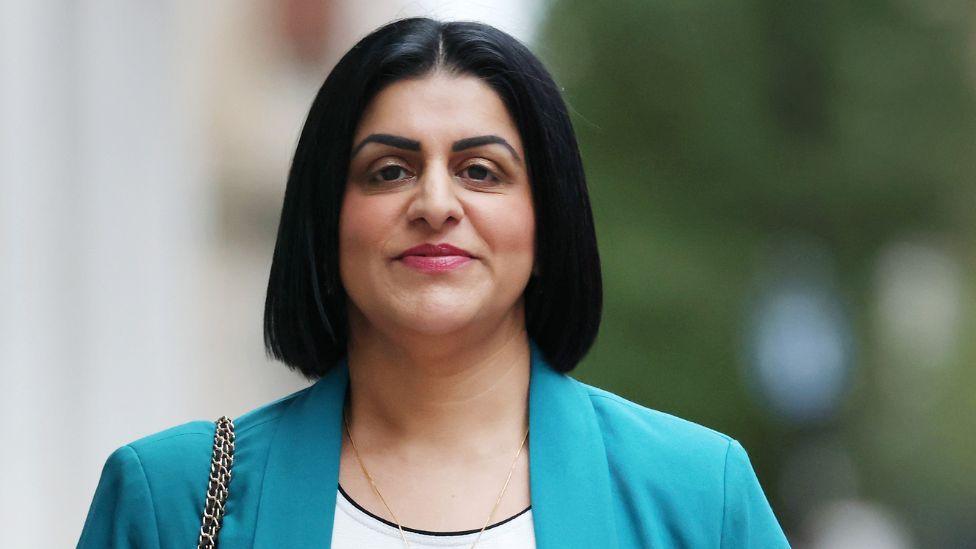
Shabana Mahmood has announced wide-ranging reforms of the asylum system
Shirley-Anne Somerville said she was "deeply concerned" that the changes would not deliver "a controlled and humane asylum system".
"Successive UK governments have failed to deliver an asylum system which treats those fleeing persecution with dignity and respect," she said.
"The UK government has an international duty and legal obligation to protect those fleeing violence and persecution around the world. It is therefore troubling that the UK government is now looking to limit refugee human rights."
Somerville said the proposals ran counter to the Scottish government's approach and called for the Home Office to work with them "to ensure families are supported and are not restricted from rebuilding their lives, contributing to our economy and our communities."
She also called for the Home Office to avoid placing any more financial pressures on local councils.
Motaz Amer, who lives in Castlemilk in Glasgow, fled war-torn Yemen as a child.
He arrived in the UK aged 16. Four years on, he and his family have been granted refugee status.
The University of Glasgow student told BBC Scotland News: "Hearing the idea that people will wait up to 20 years before they get a settlement, before they get stability, before they can get a foundation to build their life, it's really worrying.
"We're talking about men, women and children that want to have a future, ambitions and skills and want to contribute. But they won't have that ability because of such policies."
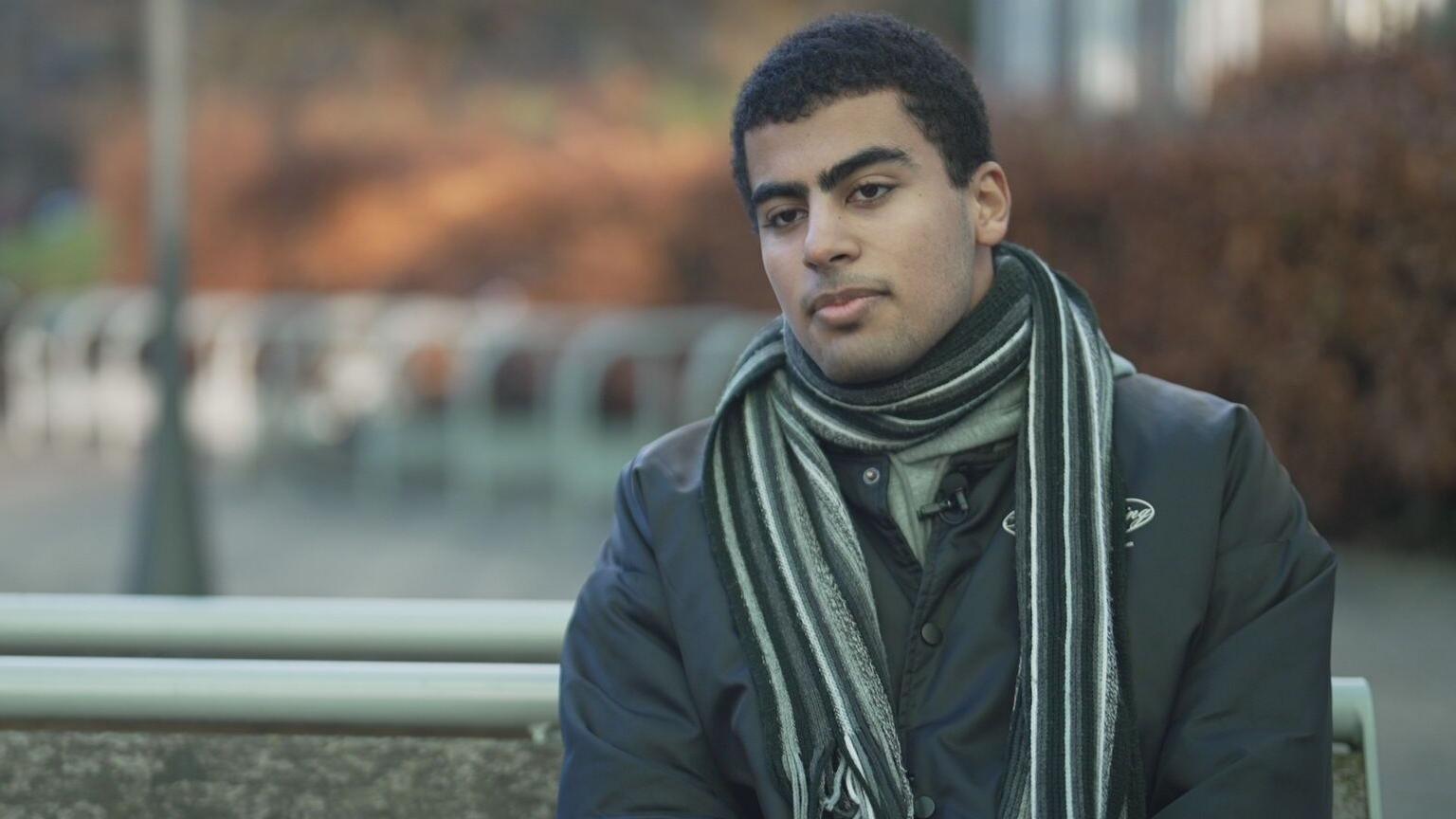
Refugee Motaz Amer, who studies at the University of Glasgow, says he is very worried about the reforms
Scottish Conservative leader Russell Findlay said illegal immigration is "completely out of control under Labour" which had "failed to stop the boats" or "smash the gangs, as they promised to do".
"The home secretary's latest announcement appears to be a small step in the right direction, but it is already meeting huge opposition from Labour MPs – so Keir Starmer may well bottle this, just as he did when his backbenchers rebelled over welfare reforms." he said.
"Kemi Badenoch has made clear that the Conservatives are willing to sit down with the UK government to discuss these plans if they help tackle illegal immigration, but the only truly credible way to stop it is to leave the European Court of Human Rights."
Scottish Labour MP Chris Murray warned that failing to reform the asylum system would "inflame far-right sentiment".
He told the BBC's Scotcast that the home secretary's reforms would make the rules "fit for purpose for the 21st Century".
The Edinburgh East and Musselburgh MP said that rules for refugee family reunions were being brought into line with the rules for other immigrants, and that the reforms would result in a "controlled" and "fair" system.
Thomas Kerr, a Reform UK councillor on Glasgow City Council, accused the UK government of "headline-grabbing" and predicted that the plans would make little "tangible" difference.
He said Glasgow was a "very welcoming" city and that he wanted people who were "genuinely seeking refuge" to come, but he claimed that some people were "abusing the system".
Kerr also called for the UK government to leave the ECHR to prevent courts being used to stop deportations.
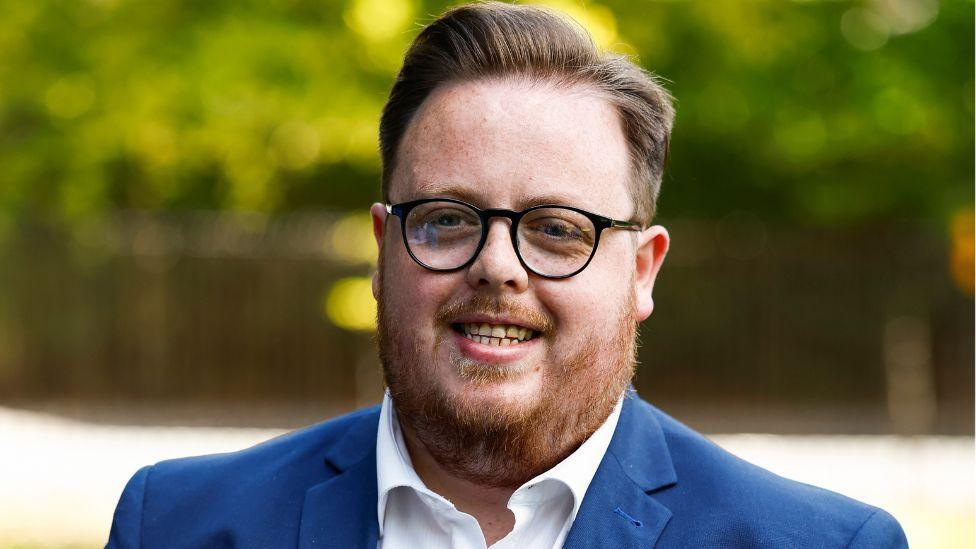
Thomas Kerr was Conservative candidate in a 2023 Westminster by-election
Asylum claims in Britain are at a record high, with 111,800 applications in the year to June 2025, according to official figures. There is also a backlog of more than 50,000 appeals and a waiting time of at least a year.
International migration has fuelled a record high in Scotland's population despite a falling birth rate.
That has coincided with immigration increasingly being seen as a major issue for Scottish voters, according to recent polling, external.
The Home Office is responsible for housing people who have applied for refugee status. But that support quickly expires once applicants are granted refugee status, leading to many becoming homeless.
Scottish local authorities, which have a legal duty to house homeless people, must then step in.
That has contributed to particular issues in Glasgow, which houses more asylum seekers - about 3,800 - than any city outside of London.
Glasgow City Council leader Susan Aitken recently told BBC Scotland News that the city had essentially "run out of temporary accommodation".
Highland Council has also raised concerns about "community cohesion" over UK government proposals to temporarily house about 300 men in Cameron Barracks, near Inverness city centre.
The proposals have sparked protests and counter protests, with rival demonstrations facing off in the city on Saturday.
That followed several protests outside hotels used to house migrants in Glasgow, Aberdeenshire, Falkirk and Perth.
- Published19 September
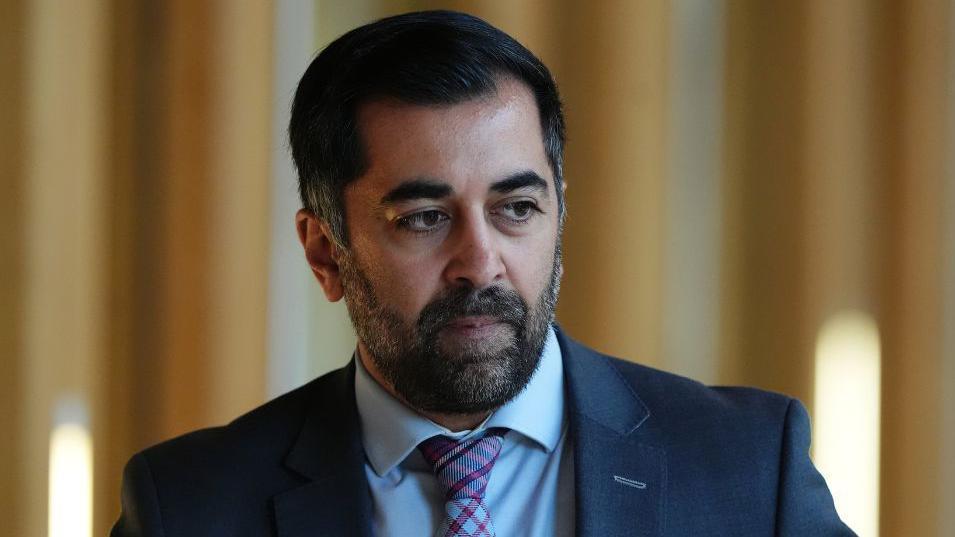
- Published9 October
